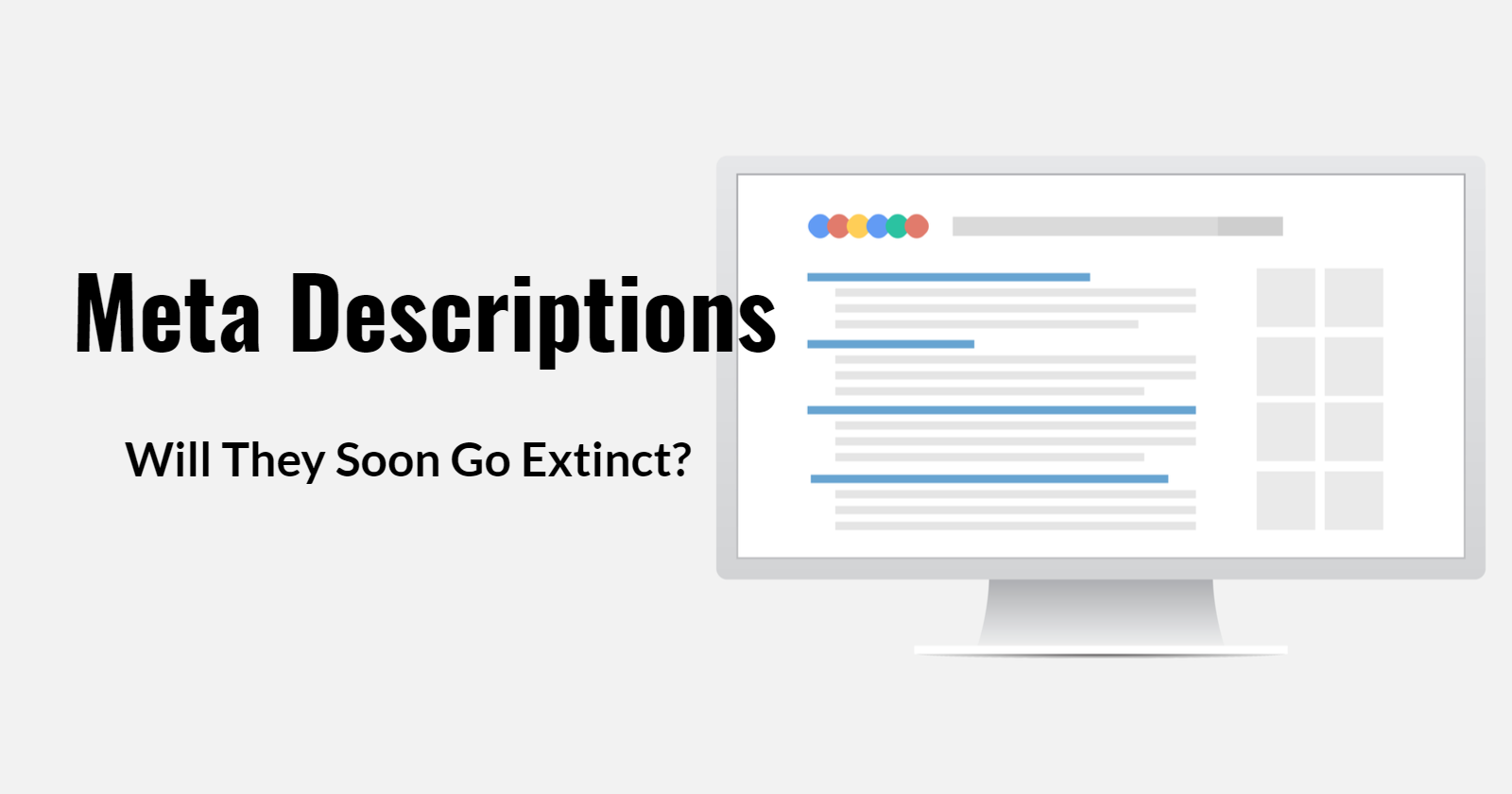Meta descriptions, as most marketers know, are HTML attributes that explain a webpage’s content with a relatively short summary.
Until December 2017, that “short” summary was recommended to be only 160-ish characters before Google would truncate it on the search engine results page (SERP). That, or Google would automatically generate its own “ideal” description in place of the one the page had in place.
The latter scenario is more common when Google believes a page’s metadata may be misleading or poorly done as a reflection of what the page’s content actually is.
And, while Google will still truncate a really long meta description (and substitute what it thinks is a better one for a specific web page), it announced the expansion of meta descriptions on the SERP to 320 characters in order to offer more information to users.
Current State of Meta Descriptions
The fact that Google is still making changes to how meta descriptions are delivered on the SERP to help users better understand content is one glaring fact that illustrates the importance of meta descriptions, and the unlikelihood that they may soon go extinct.
We know that, since at least late 2009 when Google published it, meta descriptions aren’t a direct ranking signal; and that’s OK.
Meta descriptions do help improve webpage performance, though, and they’re still incredibly important, and should be treated as such.
“Good meta descriptions are short blurbs that describe accurately the content of the page. They are like a pitch that convince the user that the page is exactly what they’re looking for.”
And the reason for that recommendation is simple: a well-crafted meta description will improve a page’s performance and even its visibility a number of ways, including through positive user-behavior signals surrounding a strong click-through rate.
Why Would Meta Descriptions Go Extinct?
So why would anyone think meta descriptions may soon go extinct?
Some of the biggest reasons include all of the spammy manipulations that have taken place in the past with metadata since it is user-controlled, and the ability to continue to be able to be manipulated to this day.
It’s common knowledge among SEO pros that meta keywords have no effect on a webpage’s performance or ranking/visibility.
Yet uninformed webmasters still keyword stuff the meta keywords field like it’s the most important ranking factor used by Google.
The fact that the world’s most prominent search engine ignores meta keywords may lead people to think that something similar could be in store for meta descriptions.
But it isn’t.
There’s a reason Google has meta description recommendations. And there’s a reason Google wants each one to:
- Be a proper representation of that page’s content.
- Be unique on a page-by-page basis (like content).
- Fit within a certain number of characters.
Meta descriptions help Google achieve its main goal: supplying users with the information they are looking for, as fast and conveniently as possible.
It’s one of the few elements of SEO that can be controlled by the site publisher (aside from the most important element, the on-page content) and that’s the reason for both a meta description’s importance but also lack of importance.
If meta descriptions were given considerable weight to directly affect search engine rankings, they’d be (even more so) the most doctored-up and falsified elements on the web. Keyword-stuffed meta keywords tags are a good example of that.
On the other hand, if they were ignored completely, it’d be one less tool Google has to offer to users searching for specific content.
The Future of Meta Descriptions
It’s highly unlikely meta descriptions become any more irrelevant than they currently are. They have the important job of summarizing a page’s content and serve as one of the most critical elements on the ever-changing SERP.
To eliminate meta descriptions completely, there would need to be a different element of a webpage that does its job better. And there simply isn’t one currently.
One remote possibility could be Google dynamically generating all meta descriptions on the web the way it currently does for sites that have poor and/or misleading meta descriptions.
But this would create even more work for Google (although it already publishes about 50 percent of websites’ meta descriptions, according to a Moz study) and, more importantly, give less power to publishers of the web.
These two ideas sound fairly unlikely, especially in the current digital landscape where Google tries to keep webmasters informed and equipped to succeed with the right content.
What is likely is Google continuing to use meta descriptions as a main feature of the SERP, and now that the length has been increased, Google essentially just made meta descriptions even more important.
Continue to leverage meta descriptions the way Google recommends and, if you create killer content that is unique and useful, you’ll continue to “win the click” among your competitors.
What Does This Mean for Marketers?
Just as we always have, SEO pros, web publishers, and marketers should continue to treat meta descriptions — and all website metadata and on-page elements — with a consistent, thoughtful approach.
Website metadata is one of the backbones of a website’s existence in organic search. And it’s one of the few site elements web publishers can control, not just within their websites, but on the SERP.
Meta descriptions are somewhat of a “free advertisement” in Google (and other search engines) for each page of your website, so it’d be foolish not to take advantage of it and try to make the best possible meta descriptions.
That means optimizing them to not just include keywords and the proper number of characters to show up ideally in the SERP, but also to be aimed at specific stages of intent, another powerful way to get the most out of metadata.
When targeting informational keywords with informational on-page content, use informational wording that suits the user and the content they are looking for. Use the meta description as a tool to communicate with the searcher that your page has the answer they are looking for.
To the same point, when a page’s content (and the search query used to get there) are transactional, use actionable, purchase-driven language to help get the user to click on your page, and also to convert.
One of the most important characteristics of a quality meta description, according to Google, seems obvious, but it’s to be descriptive.
A well-constructed, eloquent label will help your website stand out — generating more traffic and clicks — but also perform better in a general sense — by producing quality traffic.
Conclusion
Take the time to produce high-quality meta descriptions, as well as title tags, header tags, and image attributes, and you will see the positive effects of your efforts by way of improved organic search traffic and performance.
Doing so will benefit your website for a long time, as meta descriptions are going to continue to be important for the foreseeable future of search.
More Meta Description Resources:





